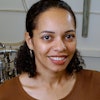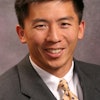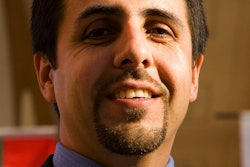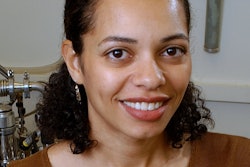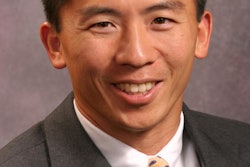Dr. Trachette Jackson would never have guessed she would be considered one of the nation’s youngest preeminent scholars in the burgeoning field of mathematical biology, particularly since she went to college to become an engineer.
“Although I was always good at math, I always wanted to be an engineer,” says Jackson. “But a mathematics professor actually recognized my talents, took me under his wing and steered me away from engineering.”
The move has turned out to be a good one for Jackson.
She’s become one of a handful of tenured Black women in a math department at a Research I university and has won a slew of awards for her work.
She was one of the very best 118 young faculty members in the math and sciences to receive the prestigious Alfred P. Sloan Fellowship in 2003. She’s only the second female to receive the award in the field of math.
“This is an excellent mathematician, and she really is after the biology [of math],” says Dr. Mike Reed, professor of math at Duke University where Jackson did some postdoctoral work along with her husband. “She’s really driven by the science and if you’re driven by the science, then success follows. I have tremendous admiration for her for that.”
Jackson chose to work at Michigan seven years ago, attracted by a tenured position but more so by a university where research was truly emphasized.
“The research environment was really a selling feature,” she says. “My area of math relies on collaboration with a medical school really active on the research side. And the mathematics department had a sincere desire to advance in this research area. I would get to shape that and where it would go.”
But teaching and researching mathematics biology isn’t just a way to earn a living, it’s Jackson’s way of doing something to better society.
With mathematical biology, Jackson uses mathematical tools and mathematical theory to help advance the biological sciences.
Currently, her work focuses on cancer tumor growth and tumor therapy and using cell-based mathematical and computational approaches to simulate how blood vessels form in cancer growth.
She’s been part of numerous publications on the topic, including one in the 2007 Biophysical Journal.
The only small challenge so far has been trying to hold it all together, Jackson says.
“Once you have tenure, you have lots of things that take you away from research — teaching, service to the university, family — everything has to be juggled.”
But it’s a juggling act that Jackson, an admitted perfectionist, doesn’t mind tackling. She also finds time to read voraciously and play on a club women’s soccer team at the university.
“She’s an extremely hard worker,” Reed says. “She’s also an extremely nice person. She’s the exact opposite of a mathematics nerd.”
Jackson’s advice to younger scholars is the same bit of advice that keeps her going — pursue your passions.
“Someone once told me to find what you love and vigorously pursue it,” she says. “Once I found that math had all these opportunities to say something about the real world, it made me vigorously pursue a career in math. I hope what I do can serve as an example that math can be a career goal.”
Title: Associate Professor of Mathematics and Co-director, Mathematics Biology Research Group, University of Michigan
Education: Ph.D., Applied Mathematics; M.S., Applied Mathematics, University of Washington; B.S., Mathematics, Arizona State University summa cum laude



